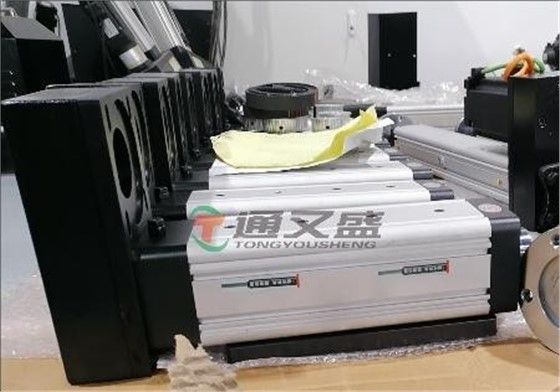The plastic processing industry is energy-intensive, and reducing energy consumption and operating costs is a crucial way for enterprises to enhance competitiveness. Belt-driven electric cylinders have significant advantages in energy conservation and environmental protection, bringing tangible economic benefits to plastic processing enterprises.
Compared with traditional pneumatic cylinders and hydraulic cylinders, belt-driven electric cylinders have higher energy conversion efficiency. Pneumatic cylinders require compressed air for power, and the air compression process consumes a large amount of electrical energy, with energy losses such as air leakage during use. Hydraulic cylinders need hydraulic pumps to pressurize hydraulic oil for power, which also consumes substantial electricity. Additionally, hydraulic systems suffer from issues like hydraulic oil leakage and temperature rise, leading to energy waste. In contrast, belt-driven electric cylinders are directly driven by motors, featuring high efficiency in converting electrical energy into mechanical energy.

In injection molding machines, driving with belt-driven electric cylinders can significantly save energy compared to traditional hydraulic drives. For long-running plastic processing equipment, this translates to substantial savings in electricity costs.
Belt-driven electric cylinders generate almost no pollutants during operation, avoiding environmental pollution. By contrast, hydraulic oil leakage in hydraulic systems may contaminate soil and water sources, requiring specialized treatment, while pneumatic cylinders produce noise and exhaust emissions during operation. With increasingly strict environmental requirements, plastic processing enterprises using belt-driven electric cylinders can better comply with environmental regulations, avoiding fines and production suspension risks caused by environmental pollution issues.


